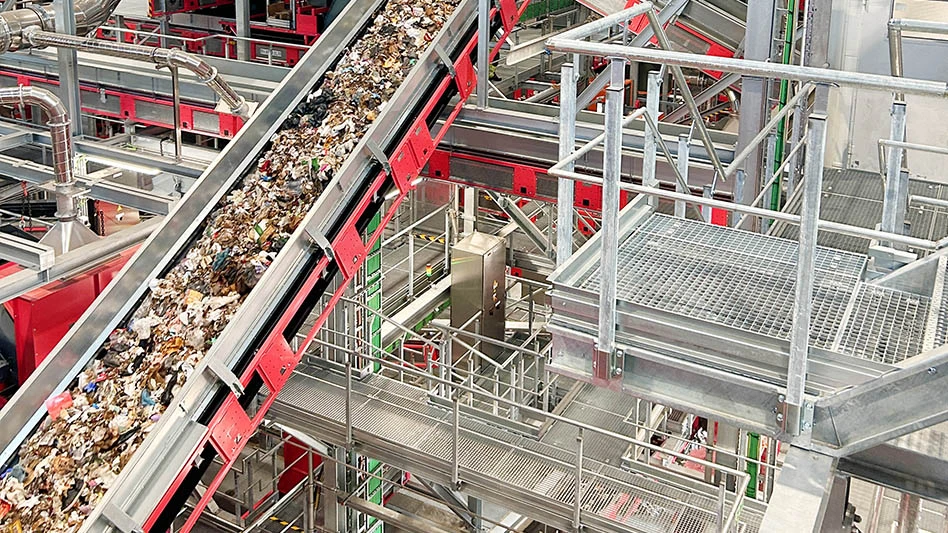
It could be argued the current zeitgeist is to challenge all past practices in favor of new solutions. In that light, we can look to the field of green building for a timely question: What does it mean to deconstruct rather than demolish a building? The answer depends on the respondent’s perspective, but, in general, to deconstruct is to selectively dismantle building components for reuse, repurposing or recycling. Deconstruction differs from demolition, where a site is cleared of selected structures by the fastest means available.
New is not always necessary
Helping the planet not only helps us feel good personally but can also be fiscally beneficial to a project budget. Dismantling a building can improve the bottom line. Let’s look at deconstruction from the perspectives of an architect, a general contractor and a recycler.
From an architect’s vantage point, deconstruction allows for the reimagining of a space without destroying the embodied energy in the building, reshaping it into a different space with on-site materials. Deconstructing saves energy, relieves supply chain stressors and diverts valuable materials from being disposed of in landfills.
As a case in point, the Blackhawk Generating Station project in Beloit, Wisconsin, involves the redesign of a power plant into a student center. Instead of tearing it down and removing all vestiges of its identity as an energy plant, the building’s embodied energy is reconfigured and reclaimed, which retains historical context and reinvents the space for the community.
From a general contractor’s point of view, the cable channel HGTV has convinced us to love “demo days.” Some contractors automatically think deconstruction requires more labor hours and outlets to coordinate where all the materials are delivered. Instead of having one dumpster taken to one landfill, paying the same price and dealing with the same set of people, the contractor must coordinate hauling differently.
However, on the upside, deconstruction can provide rebates and savings and offers a different way to spend valuable budget dollars. Deconstruction is needed to address supply chain shortages and decarbonize the planet.
From a recycling processor’s perspective, there is financial value in using a deconstruction approach. Companies such as Repurposed Materials Inc., Henderson, Colorado, and the Lifecycle Building Center, Atlanta, have been profitable by doing just that while saving building owners the cost of disposal.
Deconstruction-based recyclers can benefit from large-scale building deconstruction jobs where the glass, concrete, metals, wiring and furniture all have resale value. Projects support businesses and provide sustainable solutions, shifting how we maintain our communities.
Looking forward
Imagine if an architect, instead of specifying hard-to-recycle vinyl composite tiles, had the contractor polish the concrete and inlay carpet tile in high-traffic areas.
Imagine a pallet-sized bag available on-site to place acoustic ceiling tiles so the lighting tradesperson can take it to a warehouse to be inventoried and repurposed or recycled in volume.
Imagine if a scrap metal processor were across the street from the photovoltaic manufacturing plant, allowing the company to source local materials for its products that came from nearby dismantled buildings.
It does not seem far-fetched to imagine that these manifestations of a deconstruction-based economy could be achievable with cooperation and coordination.
Historically, society has valued both the whole and the parts of durable goods because there was intrinsic value in repairing or replacing items to reuse original products. Since the commercialization of plastics in the 1960s and the advent of single-use products in the building industry, industrialized countries routinely demolish buildings unless they have a recognized historical value or laws require adaptive reuse of the structure.
Deconstruction is a matter of retooling the process and not forgetting the fundamentals of the three Rs: reduce, reuse and recycle.
Policymakers, architects, general contractors and recyclers must take action to preserve construction resources for future generations. In the sustainability framework, people, planet and profits are equal. I challenge the industry to apply a deconstruction framework over demolition in the next building or redesign venture.

Explore the November December 2022 Issue
Check out more from this issue and find your next story to read.
Latest from Waste Today
- US Senate backs reduced cuts to EPA
- ELV Select Equipment, Reworld aid NYPD in secure firearm disposal
- Waste Connections announces Q2 results
- Returnity and Cosmoprof to address reusable bag waste
- SWANA releases report on aging WTE facilities
- New economic assessment reveals cost benefits of California’s SB 54
- Premier Truck Sales & Rental opens new facility
- TeknTrash Robotics, Sharp Group partner on humanoid robot pilot





